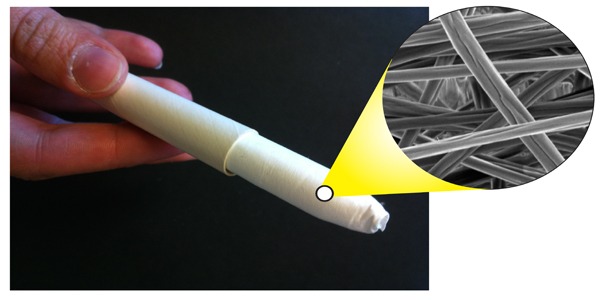Dr. Woodrow, doctoral student Cameron Ball and other bioengineers in Dr. Woodrow’s lab have discovered a faster way to deliver a topical drug that can protect women from contracting HIV. The researchers created a fiber material embedded with the drug through a process called electrospinning that quickly dissolves and releases a potent antiretroviral drug, maraviroc, when it comes into contact with moisture.
The researchers discovered in 2012 that electrospun fabric has the ability to release drugs, potentially offering a way to protect women against HIV and pregnancy. Their new findings build upon their previous work and show that the material can hold a significantly higher level of medicine than other anti-HIV platforms currently in development.
The researchers suggest that their material works more quickly, is more potent and easier to use than other anti-HIV microbicides currently in development. Gels, films and tablets either work too slowly or deliver too low a drug dose to be optimally effective.
The researchers’ work was published in the August issue of Antimicrobial Agents and Chemotherapy; it was also released in an online advanced issue, featured in an earlier post on the UW Bioengineering website.



